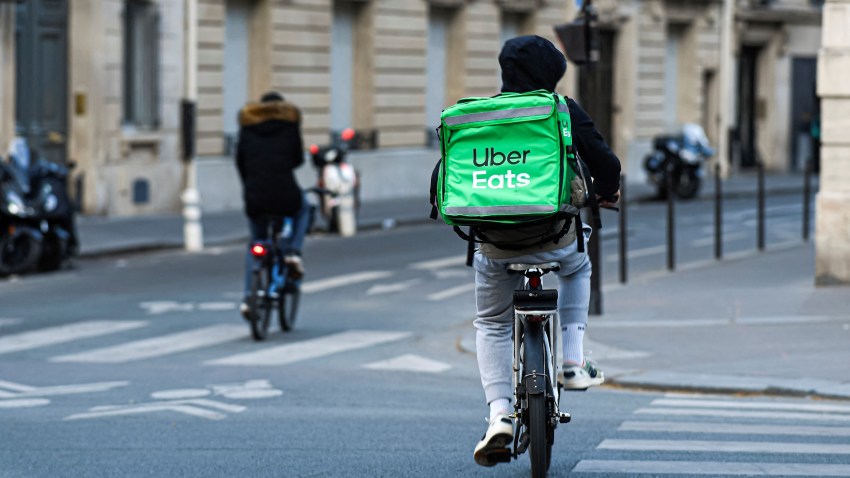It was supposed to be a red-letter day for the 30 million gig economy workers driving and delivering for the likes of Uber and Just Eat across the European Union. But on Feb. 15, the bloc’s implementation of its flagship digital platform work directive, designed to enhance the status and employment conditions of these workers, failed to clear the final hurdle, scuppered by the vetoes and abstentions of Germany, Greece, France and Estonia. The blocking of the directive, described by one progressive member of the European Parliament as an “incomprehensible decision,” was just the latest twist in the trajectory of a controversial proposal that has been shaped by landmark court rulings, a global pandemic and the EU’s pernicious lobby industry.
During the COVID-19 pandemic, the revenues of digital platform companies like Uber, Just Eat and Deliveroo soared, while the drivers and bikers who risked their health to deliver the goods remained contractors with minimal employment rights, as these businesses stuck doggedly to the notion that their workers were self-employed. The pandemic greatly increased public appreciation for the efforts of low-paid, front-line workers and coincided with a string of stinging legal defeats for digital platform companies on the issue of workers’ rights.
A landmark Spanish Supreme Court decision in September 2020 ruled that the Spanish food delivery giant Glovo “was not a mere intermediary” between its riders and restaurants, but a bona fide employer. This was followed by a U.K. Supreme Court ruling in 2021 that concluded that, given “drivers’ position of subordination and dependency to Uber,” they must be considered salaried workers. Later in the same year, a Dutch court also classified Uber drivers as employees. According to James Farrar of the nonprofit workers’ rights organization Workers Info Exchange, which backed the Uber drivers’ case in the U.K., these rulings were a timely rejection of a “false new paradigm for modern work where the old rules do not apply.”

